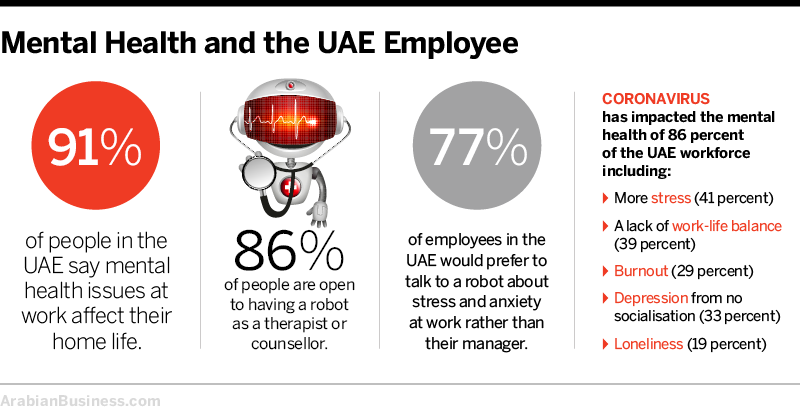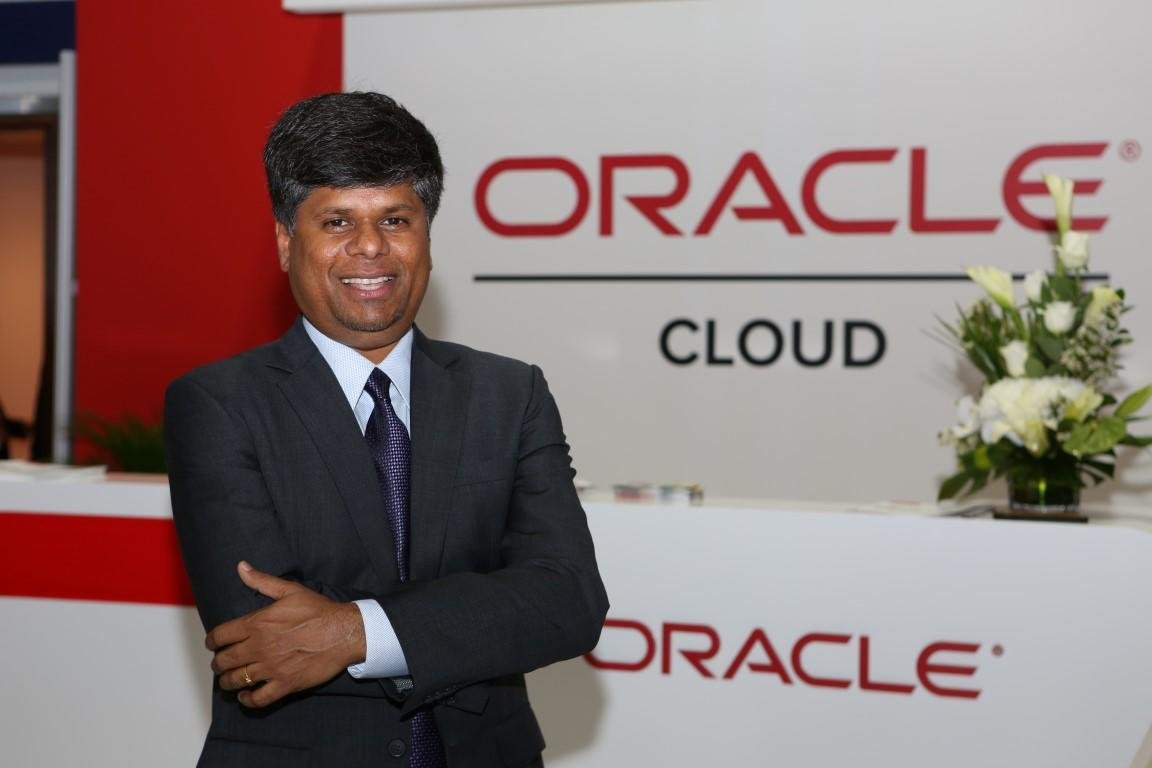
Why most UAE employees would prefer to talk to a robot about stress
Over three-quarters of employees in the UAE would prefer to talk to a robot about stress and anxiety at work rather than their manager.
According to the latest survey from technology giant Oracle and Workplace Intelligence, an HR research and advisory firm, 77 percent chose automation over human interaction when it comes to mental health issues.
While 86 percent of people are open to having a robot as a therapist or counsellor.
Swami Natarajan, senior director, business development and strategy leader at Oracle, told Arabian Business: “Obviously robots are free from judgement, this is what the survey results are saying. There is an unbiased outlet to share their problems because when it comes to mental health you really want to be very careful when talking to a manager in terms of what to share and what not to share.

“Whereas when it comes to an artificial intelligence solution, there’s no bias, no judgement and then you get answers, you get a quick answer saying probably this is what you should be doing.”
The study of more than 12,000 employees, managers, HR leaders, and C-level executives across 11 countries, including 929 respondents in the UAE, found that the Covid-19 pandemic has increased workplace stress, anxiety, and burnout for people all around the world.
This has negatively impacted the mental health of 86 percent of the UAE workforce, causing more stress (41 percent), a lack of work-life balance (39 percent), burnout (29 percent), depression from no socialisation (33 percent), and loneliness (19 percent).
“This cannot be ignored and will definitely have a profound impact on the global productivity of many organisations and, more importantly, it is touching both the personal and professional workforce,” said Natarajan.

Ninety-one percent of people in the UAE say mental health issues at work affect their home life, with the most common repercussions, sleep deprivation (37 percent), poor physical health (43 percent), reduced happiness at home (42 percent), suffering family relationships (35 percent), and isolation from friends (34 percent).
As boundaries have increasingly blurred between personal and professional worlds with people working remotely, 52 percent of people are working more than 40 hours each month and 29 percent have been burned out from overwork.
However, despite perceived drawbacks of remote work, 68 percent of UAE workers find remote work more appealing now than they did before the pandemic, saying they now have more time to spend with family (60 percent), sleep (34 percent), and get work done (35 percent).
“With new remote work expectations and blurred lines between personal and professional lives, the toll of Covid-19 on our mental health is significant – and it’s something that workers across every industry and country are dealing with,” said Dan Schawbel, managing partner, Workplace Intelligence. “The pandemic has put mental health front and centre – it’s the biggest workforce issue of our time and will be for the next decade.”
According to the survey results, 94 percent of the UAE workforce would like their company to provide technology to support their mental health, including self-service access to health resources (42 percent), on-demand counselling services (42 percent), proactive health monitoring tools (42 percent), access to wellness or meditation apps (41 percent), and chatbots to answer health-related questions (32 percent).

Natarajan said: “This is not a case of reducing the workforce or reducing the number of people, but we’re actually augmenting the whole employee wellness by putting something like an AI solution in. It’s not like a human eye that’s standing in front of you and answering questions, it is a tool, which is a software running on AI learning capabilities and able to answer some of your questions.
“AI is helping in giving the right information needed at the right time and being more effective.”











